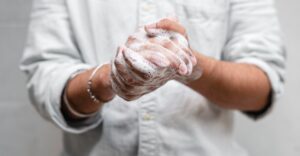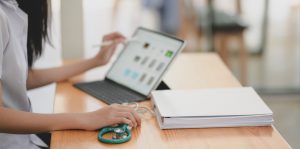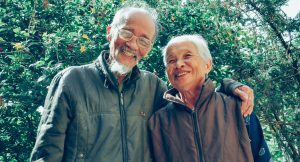At the moment, there’s no vaccine to prevent or treat Coronavirus disease (COVID-19). Existing medical remedies can only comfort or alleviate the symptoms of COVID-19. Researchers around the globe are putting in their best efforts to develop a potential vaccine that can effectively prevent or cure the disease, but it may take several months or even a year before we finally have a vaccine ready.
Until then, each one of us needs to protect ourselves from COVID-19. Here’s what you should know:
1. Understand How COVID-19 Spreads
The best way to protect yourself and others from COVID-19 is to avoid being exposed to the novel Coronavirus.
Respiratory Transmission: The virus spreads from person to person, through respiratory droplets from the mouth or a nose, when an infected person talks, sneezes, or coughs. A person can catch COVID-19 if s/he breathes in these droplets. This is the reason why numerous health authorities around the world have been advising people to maintain a distance of two meters from each other. According to new research from the Centers for Disease Control and Prevention (CDC), the virus can spread up to 13 feet.
Contact Transmission: Viral particles released from the respiratory tract of a COVID-19 positive person can land on a surface or an object. If another person touches that surface/object and then touches their mouth, nose, or eyes, the virus may sneak into the body through the mucous membranes. It is not yet clear how common this mode of COVID-19 transmission is, but studies have found that the virus can survive for up to three days on stainless steel and plastic and less than one day on cardboard.
Aerosol Transmission: Virus particles emitted by infected people can be tiny enough to be considered as aerosols (suspension of fine liquid or solid particles in the air). These fine particles can remain suspended in the air for up to three hours and even travel several feet with air currents.
2. Wash Your Hands Regularly
Thoroughly wash your hands with soap and water for at least 20 seconds each time –
• You cough, sneeze, or blow your nose
• You have been to a public place
• You use a community amenity in the workplace
• You use the restroom
• You are about to have a meal
Soap is known to kill COVID-19. If soap and water are not available, use a hand sanitizer that has at least 60% alcohol. Avoid touching your mouth, eyes, and nose unless you’ve washed your hands with soap. Frequent hand-washing is the best defense against contact transmission of COVID-19.
3. Avoid Close Contact
It is extremely important to avoid close contact with anyone who is sick. Close contact should be avoided even if a family member is sick. When outside the home, maintain a distance of at least two meters between yourself and others. Keep in mind that a large percentage of people infected with COVID-19 may not exhibit any symptoms at all. Therefore, it is important to avoid using community amenities and strictly avoid mass gatherings.
Asymptomatic patients can continue spreading the virus amongst family members, friends, and complete strangers as silent spreaders. People, who want to find out if they are infected, can use COVID-19 rapid detection kits. Keeping a distance of at least 6 feet away from others is especially important for people who are at greater risk for severe illness. These include:
• People who are 65 years and older
• People who have serious heart conditions
• People who are diabetic
• People with HIV
• People with Asthma
• People with lung, liver, or kidney diseases
• People with an impaired immune system (immune-compromised)
• People who reside in long term care facilities or nursing homes
4. Cover Your Nose and Mouth
Since surgical masks or N-95 respirators continue to be in great demand for healthcare workers, law enforcement officers, and other emergency first responders, they are likely not to be readily available in your neighborhood. So, the CDC recommends that everyone should wear a cloth face-covering each time they venture outside their homes.
This is especially important in areas where community transmission of COVID-19 has begun. Young children (below the age of 2) and those with breathing problems should, however, avoid face-coverings. Covering your mouth and nose can protect you from infection or protect others if you are infected. In either case, use of cloth face-coverings helps stop the spread of COVID-19.
Cloth face coverings should ideally fit snugly but allow unrestricted breathing and be secured with ear loops. A face covering with several layers of fabric is more effective. When removing your face covering, make sure not to touch your eyes, nose, or mouth. Wash your hands with soap and water immediately after removing the face covering.
Depending upon the frequency of use, face coverings should be regularly washed.
5. Disinfect Surfaces
As mentioned earlier, the novel Coronavirus can survive on different types of surfaces. Therefore, frequently touched surfaces such as tables, countertops, desks, handles, doorknobs, light switches, phones, toilets, faucets, etc. should be disinfected regularly. You can use an EPA-registered household disinfectant. Such disinfectants are readily available at grocery stores. If a surface is dirty, you can use soap and water or detergent to clean it before disinfecting it.
6. Cover Sneezes and Coughs
Whether you are outside or at home, make sure to cover sneezes and coughs even if you are not using a face covering. Respiratory hygiene is a must. You can use a tissue or the inside of your elbow. Remember to dispose of used tissues immediately. Wash your hands with soap and water after coughing and sneezing. Ask others in your family to do the same. If you find someone sneezing or coughing in public, be sure to maintain a safe distance from them.








